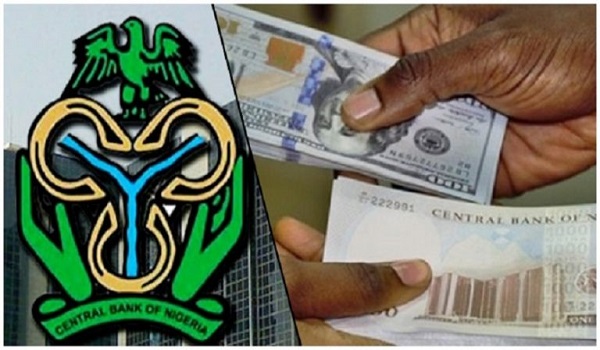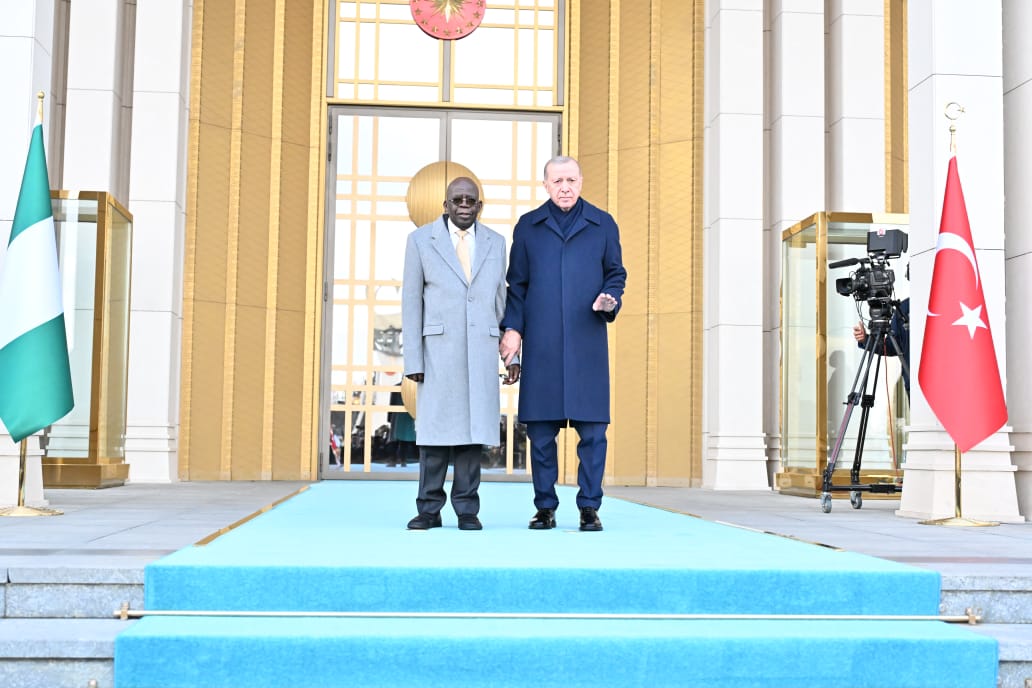EXCLUSIVE: Why Tinubu, staggered, tripped in Ankara
January 28, 2026PAG Calls for Active Voter Participation Ahead of 2027 Elections
January 25, 2026Naira Trades 1,498/$ At Official Market, CBN Tackles Racketeers
Naira Trades 1,498/$ At Official Market, CBN Tackles Racketeers

The naira appreciated slightly against the United States dollars at the Nigerian Autonomous Foreign Exchange Market on Thursday, closing at the rate of N1,498.25/$ from N1,503.38/$ recorded the previous day.
This came as the Central Bank of Nigeria on Thursday rolled out series of circulars to tackle foreign exchange racketeers and financial services operators engaged in sharp practices. The three circulars were dated February 14, 2024.
The CBN, in the first circular, stopped banks from paying Personal Travel Allowance to their customers in cash. In a second circular, it also asked International Oil Companies from repatriating all their revenue to their parent companies at once. The apex banks also, in the third circular, reviewed its guidelines to stop under-invoicing of exports and over-invoicing of imports.
They circulars came as the naira closed near 1,500/dollar at the official market on Thursday. This was despite a drop in dollar supply by commercial banks at the spot FX market.
According to data from the FMDQ exchange securities, the supply had increased by $292.3m to $381.92 on Tuesday from $89.61m recorded on Monday. It however dropped to $117.87m on Wednesday.
On Monday, the naira started at an all-time low of N1,534/$, indicating serious consequences on the price of goods and services.
The naira gained marginally on Tuesday to N1,499/$ but fell to N1,503.38/$ at the close of trading on Wednesday before recovering to N1,498/$ at the close of trading activities on Thursday.
On the parallel segment of the foreign exchange market, the Naira depreciated to N1,600/$ Thursday’s rate is about N97 or 6.45 per cent higher than the N1,503/$ at the beginning of the week.
Checks by our correspondent show that Nigerians have continued to visit the black market sellers despite the efforts of the Central Bank of Nigeria to curb speculations.
In recent times, the naira has weakened beyond financial experts’ projections. The Group Managing Director of Cowry Asset Management Limited, Johnson Chukwu, during his firm’s 2024 outlook event projected that the naira might depreciate to N1,500/$ in 2024.
He said, “The worst case scenario is that the naira could worsen to N1,500 against the dollar.”
A Bureau De Change operator in Abuja told the newsmen that the American greenback closed at N1,600/$ on Thursday.
“Today, the dollar was sold at the rate of N1,600. It is increasing and we are not happy about it.”
ABDC operator, Faruq Lawal, in the CMS area of Lagos, said that the naira closed at N1,610 to a dollar.
“We don’t know what is going on with the Naira these days,” he said.
According to the BDC operators, there is currently uncertainty as regards the price of the naira against the dollar due to high demand.
Another currency trader in Abuja confirmed that the Naira traded at N1,600 to the dollar.
A report by Comercio Partners said the Naira plunged about 66 per cent in 2023.
“The period from January 2023 to December 2023 witnessed a significant decline in the official exchange rate, plunging by 66 per cent from 462 Naira per US dollar to 1041 Naira per US dollar. Simultaneously, the parallel market recorded a rate of N1,207 compared to N755 earlier in the year, reflecting a stark disparity between the official and parallel rates,” the report said.
According to the report, the persistent FX shortages have created a formidable challenge for exchange rate liberalisation done by the Central Bank of Nigeria.
It said that despite the efforts of the CBN to address these shortages, the widening gap between official and parallel exchange rates signals a complex landscape.
Meanwhile, the CBN has reviewed the allowable limit of price deviation for exports and imports to -15 per cent and +15 per cent of the global average prices, respectively.
The bank disclosed this in a circular issued to all authorised dealer banks on Thursday and singed by its Director, Trade and Exchange Department, Dr. Hassan Mahmud.
Price deviation is a statistical term that indicates the volatility of price in a market while allowable limit is a government-imposed trade restriction that controls the number or monetary value of goods that a country can import or export during a particular period. Countries use quotas in international trade to help regulate the volume of trade between them and other countries.
The CBN said the review was due to global inflation and other related challenges. The International Monetary Fund predicted that Global headline inflation is expected to fall to 5.8 per cent in 2024 and 4.4 per cent in 2025.
The circular read in part, “Following the implementation of the Price Verification System to curb over-invoicing of imports and under-invoicing of exports, the CBN in a circular referenced TED/FEM/FPO/PUB/01/001 stated that declared prices of import items that are more than 2.5 per cent above the global average prices of the referenced item will be queried.
“However, due to global inflation and other related challenges, the CBN has reviewed the allowable limit of price deviation for exports and imports to -15 per cent and +15 per cent of the global average prices, respectively.”
END.










